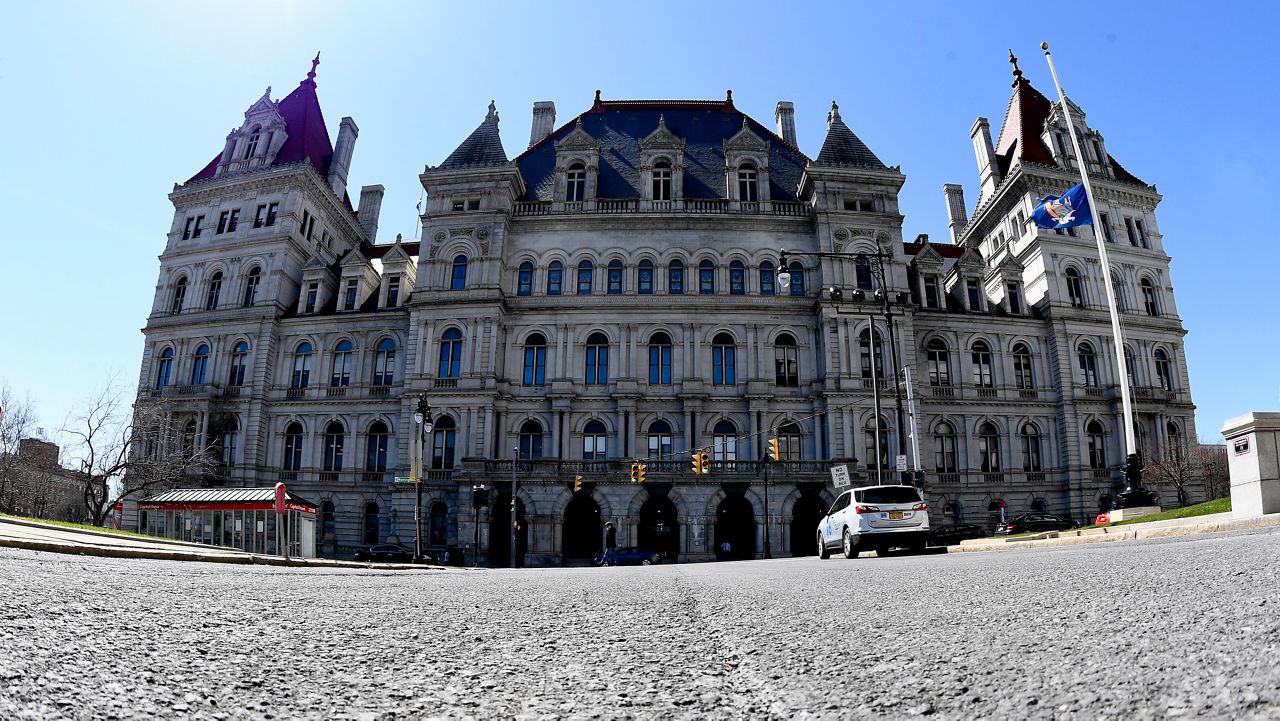Nearly a month after its initial due date, New York state lawmakers and Gov. Kathy Hochul have agreed to a $229 billion state spending plan that will make changes to a controversial bail law, boost direct aid to schools by billions of dollars and keep personal income tax rates the same.
"A conceptual agreement has been reached," Hochul said at a press conference Thursday evening.
The state budget will also increase the state's minimum wage in the coming years to $16 an hour in New York City and to $15 an hour north of Westchester County. Phased-in hikes will lead to a $17 minimum wage by 2027. After that it will be indexed to the rate of inflation.
Lawmakers and Hochul have also agreed to an expansion of charter schools in New York City by allowing for 14 so-called "zombie" licenses to be revived.
The child tax credit in New York is set to expand for families with children under the age of 4, addressing the expiration of a similar program on the federal level.
After initially discussing ways in which New York's system of publicly financed campaigns — in which political campaigns match individual donations with public money — on hold, lawmakers have agreed to fund the program without a delay.
Once given final passage in the Legislature, New York's budget this year will be one of the latest spending plans to be adopted since 2010. That year, lawmakers did not approve a final budget until mid-August.
This was Hochul's second budget since taking office in 2021 and her first since she won a full term last year. Hochul struggled to include some of her key items in the budget that she made clear were priorities for her this year.
Several of Hochul's initial proposals were pared and whittled down during the negotiations if not jettisoned entirely. A proposal to expand housing in New York through a mix of incentives for communities to build out infrastructure while also allowing the state to override local zoning officials for qualified projects was rejected by lawmakers. The proposal would have also set goals for every municipality in New York to expand housing stock in the coming years.
Hochul wants to build 800,000 new units of housing within the next decade. After an effort to reach an agreement ended in a stalemate, Hochul told reporters she would continue to pursue elements of her original plan.
The emergency rental assistance program will be expanded as well $50 million for low-income families to make housing repairs.
But the governor was able to win changes to the state's 2019 law that limited the circumstances in which cash bail is required in criminal cases after a campaign season in which crime and public safety were top concerns for voters.
Hochul also pointed to $40 million for public defenders and a pay raise for assigned attorneys providing indigent defense. She announced money for measures to combat gun violence and the State Police.
The change will give judges greater discretion in criminal cases to set bail for serious charges, loosening what's known as the "least restrictive" requirement when bail is considered.
Hochul had emphasized through the budget process she wants to address New Yorkers' concerns over crime while not undermining the initial intent of the law: addressing inequities in the criminal justice system.
On health care, the state is set to expand Medicaid spending for hospitals and nursing homes by increasing reimbursement rates.
The proposal, a 7.5% and 6.5% rise, is less than what health care networks wanted, but more than what Hochul had initially proposed.
New York will spend $34.5 billion on education, a record setting amount that also boosts direct aid to schools by more than $2 billion. The budget will also provide $134 million for schools to provide free meals regardless of a student's family income.
Hochul's initial plan to expand charter schools was reduced after objections from teachers unions.
A mobility tax to fund mass transit in the New York City area will be increased modestly, Hochul said. A two-year pilot program for free bus service on five lines will be included in the budget.
Hochul's announcement came in the evening after lawmakers left Albany and are not expected to return for several days.
Hochul called the agreement a "conceptual framework" as some legislators continue to review the specifics of the budget.


